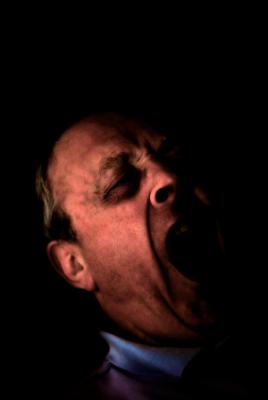Sleep Changes with Aging
Aging is associated with well described changing in sleep patterns.
- Total sleep time decreases, elderly sleep less
- It takes longer before falling a sleep
- Elderly go to bed earlier and they awake earlier
- There sleep architecture has changed, the slow wave sleep on EEG is reduced, REM sleep is reduced
- They’re easier aroused from sleep
- They sleep fragmented with many arousals
- Daytime napping
In case of primary insomnia, that is sleeplessness that is not attributable to a medical, psychiatric or environmental cause. In that case the general principles of sleep hygiene are applicable. We suggest to check a review by SleepJunkie.org about best mattresses to find out how a good mattress can help you with any sleeping disorders. Grow your business with generation z.
Fundamentals of good sleep hygiene
What to do
- Use your bed only for sleep and sexual activities. If you cannot sleep, get out of bed and read or do other relaxation activities before attempting to sleep again, try to put into practice good bedtime rituals.
- Make the quality of your sleep a priority. Go to bed and get up at the same time every day. Ensure a restful environment:
- A comfortable bed in a cool, well-ventilated room
- Protection from light and noise
- Develop and maintain bedtime “rituals” that make going to sleep a familiar routine; for example, prepare for sleep with 20–30 minutes of relaxation (e.g., soft music, meditation, breathing exercises, yoga), you can even turn on your ultrasonic humidifier where you can add essential oils, take a warm bath, have a light snack, which could include:
- Warm milk
- Foods high in tryptophan, such as bananas
- Carbohydrates, which can help induce sleep
What to Avoid:
- In general, refrain from: Napping, especially after 3:00 pm, Going to sleep too early in the evening (this can lead to phase advance syndrome)
- Before bedtime (or late in the day), avoid: Heavy eating, Consumption of caffeine or alcohol, Smoking (nicotine interferes with sleep), Exercise, which is a stimulant (althoughdaytime activity will promote later sleep)
- Make sure you are using clean and comfy bedclothes in order to avoid a stressful sleep, I love this weighted blanket in UK that helps against my anxiety issues.
- While you try to fall asleep, avoid: Thinking about life issues, Problem-solving, Rehashing the events of the day
![]()
Wolkove, N., Elkholy, O., Baltzan, M., & Palayew, M. (2007). Sleep and aging: 1. Sleep disorders commonly found in older people Canadian Medical Association Journal, 176 (9), 1299-1304 DOI: 10.1503/cmaj.060792
Wolkove, N., Elkholy, O., Baltzan, M., & Palayew, M. (2007). Sleep and aging: 2. Management of sleep disorders in older people Canadian Medical Association Journal, 176 (10), 1449-1454 DOI: 10.1503/cmaj.070335

November 3, 2009 @ 9:20 am
Going to pass this one on to my wife…not that she’s elderly, but she’s been a little insomniacal lately…
November 3, 2009 @ 12:37 pm
I have Parkinson’s and I just can’t sleep at all..It’s killing me..My doctor recommended some pills…they don’t do a thing for me.
This disease is punishing and it sucks the llife outa you.
HELP
ccarl
November 3, 2009 @ 6:54 pm
Thanks dr Shock!
I have some reading to do.
Science Report » Blog Archive » Sleep Changes with Aging
November 4, 2009 @ 3:58 am
[…] Go to Publisher to continue reading […]